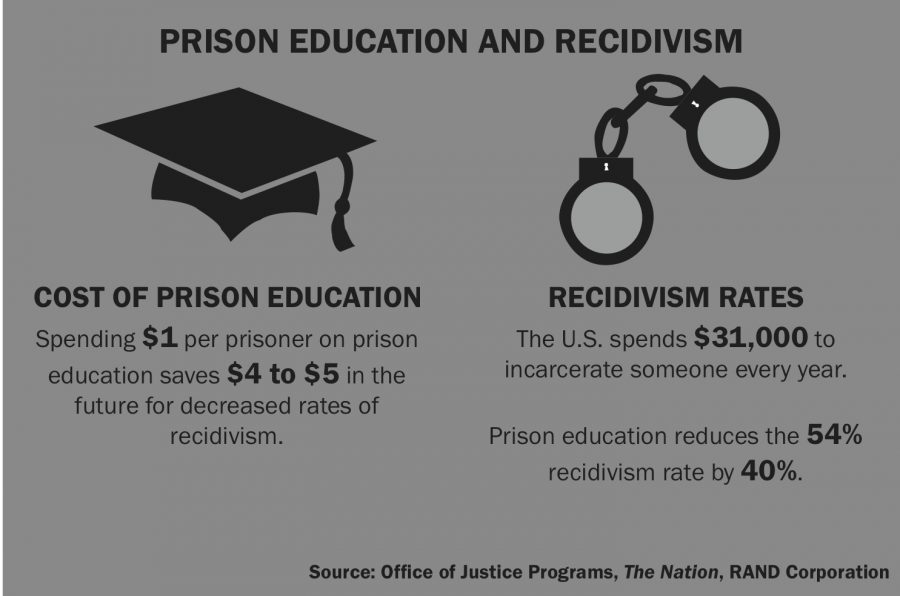The U.S. is the greatest country in the world. With money growing on trees and streets paved with gold, it makes sense that the U.S. is number one. Right? Not necessarily. We’re #14 in education, #44 in health care efficiency and #23 in gender equality. Saying ‘the U.S. is the greatest country in the world’ is a very subjective notion. However, this country is a definite victor in one field: incarceration.
The American prison system has a serious problem. The current national population of prisoners, at about 2.4 million people, is greater than the population of the city of Houston. Maintaining such prisons isn’t cheap. Studies find that it can cost about $31,000 annually to keep someone in prison. Whether or not prison is a place of rehabilitation or of retribution, something needs to be done. There could be a middle ground that exists.
After all, the goal isn’t to keep every prisoner in jail forever. Eventually, most will be released with the hope of being productive members of society. But with a staggeringly poor recidivism rate of 52 percent, it’s evident that this current system is failing. Prisoners aren’t being rehabilitated, and that is extremely problematic.
So, how do we combat this issue? Time has shown that the best method is through education. The Nation writes that prison education reduces recidivism by 40 percent. They argue that we can dramatically reduce incarceration by giving prisoners financial aid. A 2013 RAND Corporation study shows that for every $1 invested in prison education, we actually save $4 to $5 in the long run, purely due to recidivism decreasing.
In the recent past, such a reform happened: Specter grants. These grants allowed prisoners to enroll in GED-level courses. However, Congress failed to renew federal funding in 2011 — the short-term cost of developing such a program proved to be problematic.
Despite Congress’ failure, there is hope. The increasing prevalence of online college education eases the implementation of prison education. Coursera, edX and OpenCourseWare all have very prevalent and established platforms. These online courses are taught by professors from various prestigious universities all over the world. This form of implementation is much more sustainable than the Specter funds because of the cost of the courses: zero. Courses on Coursera, edX or OpenCourseWare are free.
With a society predicated on these ideas of opportunity and freedom, it’s important that we reform the current prison system. Through online education, we can turn individuals rejected by society into productive citizens. All the pieces of the puzzle are right in front of us. We just need to put them together.
Syed is a biochemistry freshman from Houston. Follow him on Twitter @mohammadasyed.





















